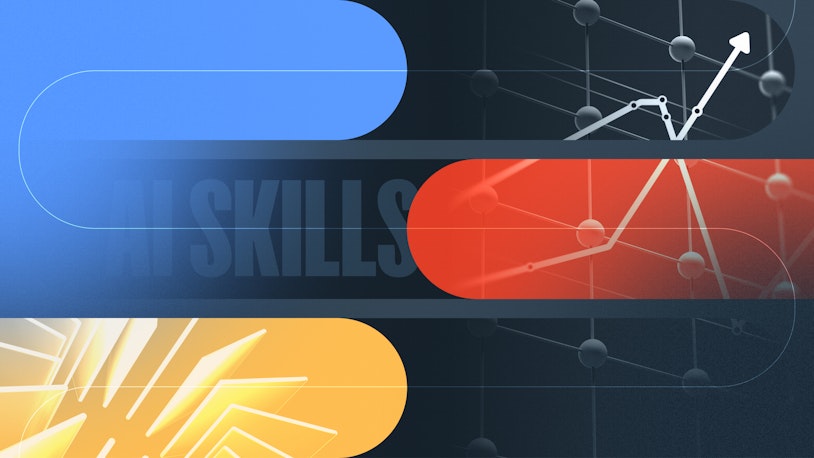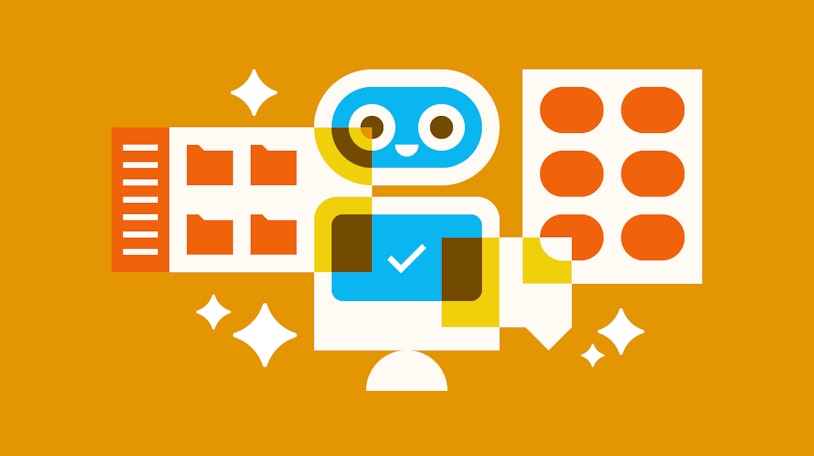Cameron:
"Remember to take a deep breath.
You are in the position that you are in because everyone around you is confident in your ability to do the job.
Remember not to act out of fear, but act out of confidence and take a moment for yourself.
There is no such thing as an email emergency, and you have everything you need at your fingertips to do the job above and beyond the level it needs to be done. You've got this."
Mat:
That calming voice that you heard at the start, that was Cameron. No. I'll I'll just let him introduce himself.
Cam:
"My name is Cameron Mitchell, and I am a tech support specialist at Help Scout."
Mat:
Yes. That's his official title, but I think it should probably be support therapist. Don't you? I'm Mat Patterson.
And in this episode of The Supportive, we are going back to the beginning, to the first few days, few weeks of a new job in customer support. So if you're new to support, if you've just started a new support role, or even if you're thinking about getting your first support role, I have got a bunch of hard earned advice to share with you. A little from my own experience, but more from other people, people who have been there before, including from some of you listening right now. Thank you.
If you listen to this episode and you follow their smart advice, you will be off to an excellent start in your support career.
But even if you're not new in support, even if you're a grizzled veteran just one ticket away from retirement.
Murtaugh in Lethal Weapon:
"I'm too old for this shit."
Mat:
Then you don't have to listen. But I think you might still want to stick around because sometimes it really does help to get back to basics, to remember why we do what we do, where it all started, the core of the job.
And the beginning in my case was my very first proper job. This was while I was still studying for my IT degree. And the reason that I wanted a proper job at that stage was so I didn't have to continue working on the checkout at Big W. Big W is sort of, the Australian Walmart equivalent.
Like, I mean, we didn't sell guns, but we did have almost exactly the same oppressively bright sales sign. It's just in every conceivable spot.
So I wanted a better job. And through a friend, I managed to get an interview in Sydney at a a company that trained accountants to be financial planners.
I would work on their phone and email tech support team, and I'd answer questions about this software that we provided to our clients. And I say software, but it was really more like a Byzantine set of Excel macros and access databases and word merge documents all tied together with this incredibly fragile visual basic code. I mean, the whole thing was like a tower of Jenga blocks that was somehow perpetually balanced just at the exact moment it's about to collapse.
But at this stage, I was mid IT degree and I'd been into computers as a kid, but I still remember being so terribly afraid that the first client that I spoke to on the phone was gonna ask me something that I had no clue how to answer. And I really wanted to know, like, what should I do if that happens, but I was also way too shy to actually ask anyone. So I just sort of hoped that it would have happened. And really, I could desperately have used Cam's message back then.
And you have everything you need at your fingertips to do the job above and beyond the level it needs to be done.
But he was probably still a literal baby back then. He wouldn't have been as helpful as he is today. But I did it. You know? I listened. I learned. I absolutely made mistakes, but I made it through.
And soon enough, I accidentally became a web designer
Grandpa Simpson:
"Which was the style at the time"
Mat:
And then I didn't come back to customer support for about a decade after that. But that's a story for another time. Let's talk about you.
If you're a person who is new at your support job or thinking about getting into support and you've found this episode because of the truly incredible promotional and SEO job that I'm definitely gonna do with it after I finish recording, well, then listen up because I've put a call out to my fellow customer service professionals. I've asked them for some short pieces of advice for anyone new to support, and I loved what I heard. And I am excited for you to hear it too, And we're gonna talk a little bit about them as we go through. But those first few days in a new job, probably they're gonna be energizing, but exhausting and exciting, but scary. And you'll feel lucky to have the work and terrified that you're gonna fail and just overwhelmed by everything that you've got to learn.
And if you're like me, you'll assume based on zero evidence that everyone else in the company, every other person who was there on the day you joined is definitely an expert, and they've been there for decades, and they know everything that's going on.
And, of course, they don't. But I wanted to start with that fear, that feeling that I remember of just not knowing the answer or being worried about not being good enough to figure it out.
But as it turns out, there was probably something else that I should have been worried about first, and I didn't even realize it until later. It's that it's not always about not knowing an answer. Sometimes you don't even know the question. And I think Blake puts it really well.
Blake Crenshaw:
"I'm Blake Crenshaw with the Buzzsprout Podcaster success team. My advice is to be ready to read between the lines. Sometimes you're answering a question that the customer doesn't even know how to ask."
Mat:
Yes. Like, you know how to read. You learned when you were a child, probably. But in those early books that we read, the meaning is deliberately pretty clear. You know? There's the moon, and for some reason, you have to say good night to all these inanimate objects.
I mean, it's not 100% clear, but it's not trying to confuse you. Right? But customers, on the other hand, often are definitely not asking for what they actually need. You know, they're asking for what they think they need or for a solution that they've decided on that doesn't necessarily apply to them.
So that skill of reading between the lines, of using context clues, of asking clarifying questions, these can be critical skills to understand the question first before you can ever get to the answer.
But I think here is where the really big secret of support lies.
It's not your job to know the answer.
I mean, obviously, a lot of the time, you are gonna know the answer, but that's not the job. The job is to get the answer. So if you have to look it up, if you have to go try some things, if you have to go ask somebody else, that's okay. That's the job. You are doing the work of finding the answer so your customer doesn't have to do it.
And plenty of people shared related thoughts on this, including...
Cody:
"Cody Magnuson, product support specialist.
Accept that you won't have all the answers, but never stop chasing them."
Mat:
Exactly. You don't have to have the answers. You have to go get them, and it can be hard to do. You've just gotta keep moving towards them. And that might take a little bit of time. That's alright. You just wanna let the customer know, like Nivedha said.
Nivedha:
"I'm Nivedha, CEO of PageLoop.ai. Don't be afraid to tell a customer that you don't have an immediate answer. But instead of saying that you're checking internally, tell them you're consulting with the product manager of the feature they have a question about."
Mat:
I think Nivedha is making a really subtle extra point there too that it it means more to a customer if you let them know you're taking their question to an expert that's meaningful to them. That's a great tip. But when you're not asking someone else, when it's just you, how are you gonna go about finding those answers? Answers? Well, your first stop, nearly always, is just searching, as Jen mentioned.
Jen:
"I'm Jen Weaver, a customer success manager at Tetra.
When a customer question stumps you, but there is a string of characters or words in their question that is unique, like error one, two, three, four, or, pending data, some string of words that's that's unique. Put it in quotes and search all of your knowledge base and or all of your previous emails for it. If you don't already have a knowledge base article, that will help you find it in previous emails and see what someone else sent to the user."
Mat:
There is usually an enormous amount of data just sitting there ready for you to read through and to learn from and your help desk and your knowledge base, your external documentation, your internal Wiki, your Slack channels, even the stall wall in the office bathroom. All of them can contain very informative messages in my experience.
It's amazing how far you can get if you just learn how to search well, and that's a skill that's worth working on. The next challenge, of course, is telling whether this answer that you think is the right one is actually the one that you need, and Sarah addressed that well.
Sarah:
"Hi. I'm Sarah Caminiti. Welcome to support. The number one piece of advice that I would give you is just to pause. Don't make assumptions.
Check, verify, make sure that the information that you're giving the customer is actually the answer to their question. Because, yes, speed matters, but accuracy matters way more, And customers would much rather wait a second for you to get the actual information they need than for you to just make a guess and they have to come back and ask another question. You're gonna do great."
Mat:
Yes. Exactly, Sarah. Customers wanted someone to be really fast by just making guesses. Why go straight to chat GPT, wouldn't they?
Andre made a similar point.
Andre:
"My name is Andre Lindye senior manager of support. And my advice for everyone starting Inspire role, test everything.
I mean, everything, and don't be afraid to ask for help."
Mat:
As Andre says, you should test everything. But sometimes, you're gonna be stuck. You just can't find the right answer, or you don't know enough yet to be able to test it properly. So you're gonna need to ask for help, and that's where Conor has a great suggestion for you.
Conor:
"This is Conor Pendergrass from customersuccess.cx. My tip for people starting out in customer support is ask questions in public spaces. So, for example, in a public Slack channel rather than in a private Slack channel or in, direct messages. The reason for this is it helps to highlight what information is missing from onboarding, And it also means that other people could benefit from your questions as well and can chime in with their own perspectives, maybe for workarounds, for missing features or functionalities, stuff like that. So it can be a feel scary, but ask questions in public."
Mat:
Love this from Conor. Although there is public and there's public, shouting your questions out on the bus, probably not as helpful. I would add one additional note, which is that when you're asking colleagues for help, let them know where you've already looked, as in, "I checked the knowledge base. I searched old conversations. I couldn't find anything about this. Where should I look next?"
It saves people from suggesting that you do exactly what you've already done, and it shows that you're trying to self educate, which people always appreciate. They'll be glad that you're getting yourself up to speed, but don't be scared to ask for help while you do it.
Alright. You've done the digging. You've run your tests. You've got the answer that you need now to communicate to the customer.
And that same answer delivered in different ways to different customers in different circumstances, it can have wildly different outcomes. Your tone, your choice of words, your structure, it all shapes the way the message will be understood.
But let's start at the beginning like Raj suggests.
Raj:
"This is Raj from Toronto. Speaking from my years in SaaS support, I would say calling and remembering customer names work like a gem."
Mat:
Such a simple thing, using someone's name correctly, and yet seemingly very difficult for people to do. I can't tell you exactly how many times in my customer service history that customers have called me the wrong name, but I can tell you that at least nine separate times, people called me Michael Peterson.
And my name, as you may recall, is the very mundane and common Mathew Patterson. Where does Michael Peterson come from? No idea.
Get people's names right. It matters to them. They aren't just a ticket in a queue, and Priscilla makes that point.
Priscilla:
"My name is Priscilla Brooke. I'm the head of Podcaster Success for Buzzsprout and the host of the Happy to Help podcast. My biggest piece of advice is to remember that there is a person at the other end of your email. It can be easy to see emails build up in a queue and see them as just emails, but offering remarkable support means remembering that behind each email is a person who needs help, and you get to be the person that makes their day."
Mat:
Have to agree, Priscilla, even though you did sneak in a plug for your own podcast on my podcast. Although, to be fair, it is actually a really good podcast, and you should listen to it, but only after you've listened to this episode twice from two different Spotify accounts, please.
Priscilla's colleague, Kate, also shared some great advice to keep in mind as you're turning your answer into a message to your customer.
Kate:
"This is Kate from the Buzzsprout podcaster success team, and my advice is to stay away from customer service y phrases. Nobody wants to hear that you're sorry for the inconvenience."
Mat:
Kate, killer of cliches. Yes. Those phrases were probably really effective when they were first thought up by a copper trader in Mesopotamia.
But now, they're not just meaningless, they're actively annoying. The twelfth time you hear your call is important to us while you're on hold, gets pretty hard to believe.
Here's someone else not a fan of a pointless apology.
Hilary:
"Hi. I'm Hilary Dudek, the head of customer experience at gamma. Don't apologize for things you didn't do. If there's a feature limitation, just state the facts instead of apologizing.
Instead of saying, I'm sorry it's taking so long to resolve this issue, say, thank you so much for your patience as we work to resolve this.
If something happened that genuinely is your fault or the company's fault, of course, apologize.
But there's typically no reason to profusely and objectively grovel."
Mat:
100%, Hillary. The only time to abjectly grovel is when you're asking your toddler to please, please go to sleep.
It won't work, but you will absolutely try it if you're ever in that situation. I guarantee it. When you apologize for something without reason, it holds no weight, and it just reduces your effectiveness at getting to a good support outcome. Sometimes, yes, you will make a mistake despite your best efforts and it will be your fault. And I have made so many mistakes in my time, some of them small, some of them not.
Mistakes are unavoidable. That's just part of life. You are not going to be the exception. So what matters is what you do when mistakes happen, and Erica has some advice on that.
Erica:
"My name is Erica Clayton, and I'm a senior leader in the B2B and B2C customer experience space.
There is virtually no mistake that you can't unmake.
Don't freak out about it. Everything is reversible.
As long as you haven't really done anything super illegal, you can back out of it.
Relax."
Mat:
In fact, there is some research that shows that people who experience problems and then have them resolved end up happier with the service than people who never have any problems in the first place. When a mistake is identified and then corrected well, you build that trust with your customer, and you also hopefully learn something that you can use next time.
So understand the question, find the answer, then be clear, be kind, be empathetic, be accurate.
And if you get it wrong, make it right. That's a lot to think about, and that's just for this one customer. You finish that off and your help desk reloads and there's a massive scrolling page of other customers needing help. It feels well, I think Brian Johnson said it best.
AC/DC: You been....thunderstruck!
Mat:
No. Sorry. I meant the other Brian Johnson.
Brian:
Hey.
"This is Brian from the Buzzsprout Podcaster Success team.
My advice is focus on the email in front of you. Don't let the total number in the inbox rush you to the point that your service suffers."
Mat:
That can be hard to do, but your managers might be able to help you by assigning things out, by creating smaller sub queues. And Hilary, who we heard from earlier, also shared another helpful tip.
Hilary:
"Find your flow. Every support agent's rhythm and flow is slightly different. Shout out as many colleagues as you can and take the best bits from their flows to make your own."
Mat:
We are all of us made up to some degree of influences from the other people in our lives at work and outside of work. And if you see someone doing something better than you can or who has an approach that you'd like, steal it. It is what our own team at Help Scout do too, as Chrissy mentioned.
Chrissy:
"And my name is Chrissy, and I'm a senior technical support specialist here at Help Scout.
My advice is don't reinvent the wheel. Just copy the high performers on your team, and you'll do great."
Mat:
You don't have to develop this incredible way of doing support that nobody else has ever come up with. It's not necessary.
If you're on a small team or a new team and you don't have those veterans to learn from, maybe you don't have that option, that's where the broader support community can help you. Elevate CX, support driven, CX accelerator, groups full of helpful people willing to share their expertise. And, of course, it helps get we've got hundreds of articles and videos that you can learn from. You don't have to do it alone. And that's what Jordan said too.
Jordan:
"Hi. Jordo here. I've been working support and content creation for the past 12 'So great to hear from you today' years. You know, I wish I would have learned earlier on that support is a lot like the lyrics from that old boy band that my dad listens to. I get by with a little help from my... friend ....friend ...friendly engineer friends."
Find people who can help you, people who get what it is that you do, and it is much easier to do now. When I was the first support person at Campaign Monitor, I literally did not know another person doing the job that I did until I met Sarah Hatter, and that's a spoiler for the next episode of this podcast.
But you have so many more options. If you're starting out now, the help is out there. You just gotta go grab it. Customer support, it can be an exhausting role mentally and emotionally, So you need to take care of yourself, and that's a theme that a few people shared, including, a Hillary that you're probably starting to get to know well.
Hilary:
"Know your boundaries. Life support is really, really hard.
Ground yourself every day in a way that feels right for you so you can use your energy to support others without depleting yourself in the process."
Mat:
If you can stick around in support, you'll find out how to make it work, and you'll figure out what you're best at. And you'll discover what we all eventually discover, there is always more to be learned. Shaun said it best.
Shaun:
My name is Shaun van Heerden, and I head the customer services for our wonderful company here in South Africa. My advice for those starting out in support is show humility in all you do, and always be learning about your role, your customers, and ultimately yourself.
Mat:
Always be learning. Good advice for people on day one and for people on day 1,000.
That's it for the podcast today. If you want to revisit those tips or share them with anyone else, check out the show notes. There'll be a link in your podcast player, or you can search for the supportive podcast on Help Scout's website.
A huge thank you to everyone who contributed to this episode, and here they are in alphabetical order. Andre Linde, Blake Crenshaw, Brian Johnson from Buzzsprout, Brian Johnson from ACDC, Cameron Mitchell, Chrissy Chavez, Cody Magnuson, Connor Pendergrast, Erica Clayton, Hilary Dudeck, Jen Weaver, Jordan Dibb, Kate Chupp, Nivedha Venkatesh, Priscilla Brooke, Raj Stalin, Sarah Caminiti, and Shaun Van Heerden.
They are all awesome. So are you for listening. And until the next episode of the Supportive, I've been Mat Patterson or Michael Peterson, and you be kind to yourself today.







